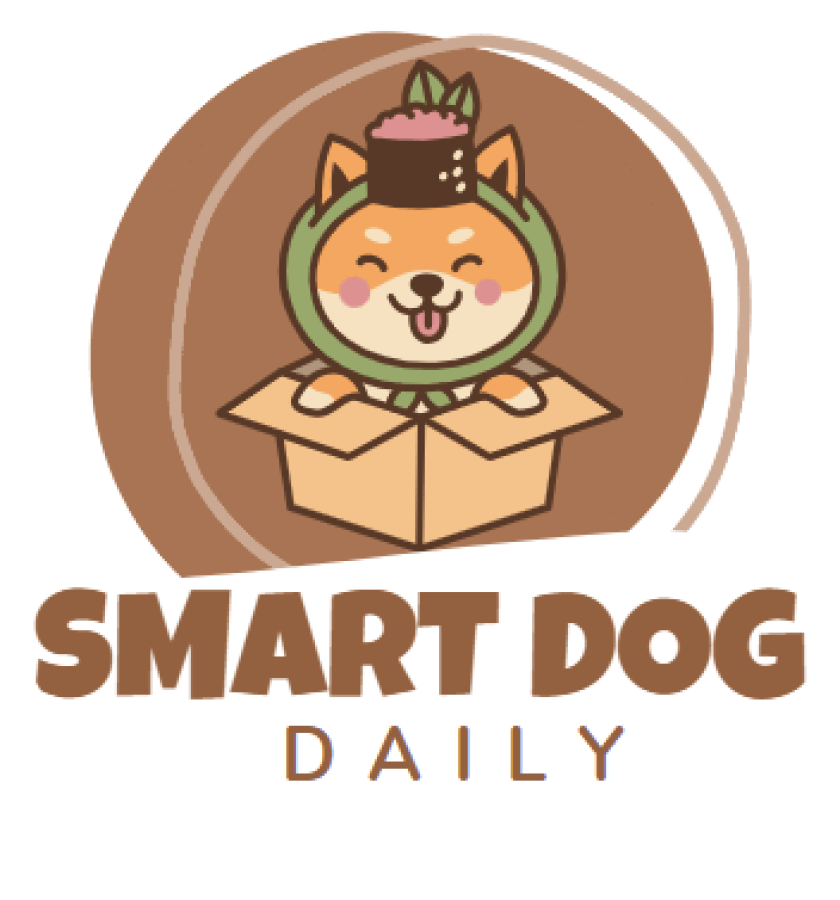Table of Contents
You’ll be intrigued to learn about the growing popularity of the Chow Chow in Singapore. This interesting dog breed has quickly captured the hearts of many Singaporeans, with its unique appearance and charming temperament. Known for its fluffy mane and distinctive blue-black tongue, the Chow Chow has become a beloved companion for families and individuals alike. Let’s explore why this breed has become such a hit in the Lion City.

Origins and History
Ancient Chinese origins
The Chow Chow is an ancient breed that traces its roots back to China. It is believed to be one of the oldest dog breeds in existence, with evidence of its existence dating back over 2,000 years. The breed was originally developed in Northern China as a versatile working dog, used for various tasks such as herding, hunting, and guarding. The Chow Chow’s ancient origins can be seen in its unique appearance and distinctive characteristics.
Royal and noble companions
In ancient China, the Chow Chow was highly prized by the nobility and royal family. They were often kept as companions and were considered a symbol of wealth and social status. These dogs were cherished for their loyalty, intelligence, and aloof nature. They were also highly regarded for their guarding instincts and were often used to protect the homes and possessions of their owners.
Importation to Singapore
The Chow Chow was brought to Singapore during the colonial period and quickly gained popularity among the locals. The breed’s distinctive appearance and regal bearing captured the hearts of many dog enthusiasts, leading to an increase in their numbers in the country. Today, the Chow Chow is a beloved breed in Singapore and can be found in many households across the island nation.
Physical Characteristics
Distinctive appearance
The Chow Chow is instantly recognizable for its distinctive appearance. It has a sturdy, square-shaped body, with a broad head and a short, compact muzzle. One of the Chow Chow’s most striking features is its deep-set, almond-shaped eyes that give it a serious and intelligent expression. Another notable characteristic is its blue-black tongue, which is unique to this breed.
Double coat
One of the Chow Chow’s most notable physical features is its double coat. It has a thick, dense undercoat that provides insulation and protection from harsh weather conditions. On top of the undercoat is a coarse, straight or slightly wavy outer coat. The coat comes in two types: rough and smooth. Both coat types require regular grooming to keep them in good condition.
Color variations
Chow Chows come in a variety of colors, including black, cream, red, blue, and cinnamon. Their coats can be solid or have different shading patterns. The most common color combination is the red Chow Chow, with its deep, rich reddish-brown coat. The color of a Chow Chow’s coat often adds to its unique and distinctive appearance.

Temperament and Behavior
Guardian instincts
Chow Chows have strong guardian instincts and are naturally protective of their families and territory. They have a keen sense of awareness and can be alert and watchful in their surroundings. This makes them excellent guard dogs, as they are quick to raise an alarm if they sense any potential threat or danger. Their natural guarding instincts make them a reliable choice for keeping your home safe.
Independent nature
Chow Chows are known for their independent and self-assured nature. They are not overly needy or demanding of attention and can be content spending time alone. While they are loyal and affectionate towards their families, they also value their personal space and can be quite aloof at times. This independent streak is a characteristic deeply ingrained in their ancient heritage.
Reserved with strangers
Due to their naturally reserved nature, Chow Chows can be wary of strangers. They may take some time to warm up to new people and may initially exhibit a aloof or distant demeanor. This should not be mistaken for aggression, as Chow Chows are not typically aggressive. However, early socialization is important to ensure that they grow up to be well-rounded and comfortable around unfamiliar people and situations.
Needs socialization and training
To ensure that your Chow Chow grows up to be a happy and well-behaved member of your family, early socialization and training are crucial. Exposing them to various environments, people, and other animals from an early age will help them become more adaptable and confident. Positive reinforcement training methods work best with Chow Chows, as they respond well to rewards and praise.
Exercise and Grooming
Moderate exercise requirements
While Chow Chows are not high-energy dogs, they still require regular exercise to keep them physically and mentally stimulated. Daily walks, play sessions, and short training sessions are recommended to help them burn off excess energy. However, it is important to avoid strenuous exercise or activities during hot weather, as Chow Chows are prone to heat sensitivity.
Regular grooming needs
Chow Chows have a thick double coat that requires regular grooming to keep it in good condition. Brushing their coat a few times a week will help prevent matting and tangling. During shedding seasons, which occur twice a year, more frequent brushing will be necessary to remove loose fur. Additionally, regular bathing and nail trimming are also important aspects of their grooming routine.
Prone to heat sensitivity
Due to their thick double coat and brachycephalic (short-muzzled) facial structure, Chow Chows are more prone to heat sensitivity than other breeds. They can overheat easily in hot and humid climates, making it important to provide them with cool and shaded areas to rest and access to fresh water at all times. It is also advisable to limit their outdoor activities during peak heat hours.

Health Concerns
Hip dysplasia
Hip dysplasia is a common health concern in many large dog breeds, including Chow Chows. It is a hereditary condition that affects the hip joints, causing pain, lameness, and difficulty in mobility. Regular exercise, a balanced diet, and maintaining a healthy weight can help reduce the risk of hip dysplasia in Chow Chows. Regular vet check-ups and X-rays can help detect any signs of hip dysplasia early on.
Entropion
Entropion is an eye condition that commonly affects Chow Chows. It is characterized by the inward rolling of the eyelids, causing the eyelashes to rub against the cornea. This can lead to irritation, corneal ulcers, and vision problems. Surgical correction is usually necessary to alleviate the discomfort and prevent further damage to the eyes.
Autoimmune conditions
Chow Chows have a higher predisposition to certain autoimmune conditions, such as autoimmune thyroiditis and pemphigus foliaceus. These conditions can affect the immune system and cause various symptoms, including hair loss, skin problems, and general lethargy. Regular vet check-ups and early detection are important for managing and treating these conditions effectively.
Thyroid issues
Thyroid issues, such as hypothyroidism, are also prevalent in Chow Chows. Hypothyroidism is a condition where the thyroid gland does not produce enough thyroid hormone. Common symptoms include weight gain, hair loss, lethargy, and skin problems. Regular blood tests and medication can help manage thyroid issues in Chow Chows.
Obesity
Chow Chows have a tendency to gain weight easily, so it is important to carefully monitor their diet and provide them with regular exercise. Obesity can lead to various health issues, including joint problems, diabetes, and heart disease. Maintaining a healthy weight is crucial for the overall well-being of your Chow Chow.
Training and Socialization
Patience and consistency
Training a Chow Chow requires patience and consistency. These dogs have an independent streak and can be quite stubborn at times. Positive reinforcement training methods, such as rewards and praise, work best with Chow Chows. It is important to set clear boundaries and establish yourself as the pack leader through consistent and gentle guidance.
Positive reinforcement
Chow Chows respond well to positive reinforcement training methods. Rewarding desired behaviors with treats, praise, and playtime will motivate them to repeat those behaviors in the future. Harsh or punitive training methods can be counterproductive and may damage the trust between you and your Chow Chow.
Early socialization
Early socialization is crucial for Chow Chows to ensure that they grow up to be well-rounded and comfortable in various social settings. Exposing them to different people, animals, and environments from a young age will help prevent fear or aggression issues as they grow older. Enrolling them in puppy socialization classes and providing regular opportunities for interaction are highly recommended.
Living with a Chow Chow
Suitable for apartments
Despite their large size, Chow Chows can adapt well to apartment living as long as their exercise needs are met. They are generally calm and quiet indoors, making them suitable for apartment dwellers. However, it is important to provide them with regular exercise and mental stimulation to prevent boredom and destructive behaviors.
Not recommended for first-time dog owners
Chow Chows are not typically recommended for first-time dog owners. They require experienced owners who can provide consistent training and handle their independent nature. Their grooming needs and potential health issues also require extra attention. Owning a Chow Chow requires a committed and responsible approach, making them better suited for experienced dog owners.
Potential challenges
Chow Chows come with their own set of challenges. Their independent nature and occasional stubbornness can make training more challenging. Their thick double coat requires regular grooming, which can be time-consuming. They can also be prone to certain health issues that may require extra care and attention. However, with the right knowledge, patience, and commitment, these challenges can be overcome, and owning a Chow Chow can be a rewarding and fulfilling experience.
Chow Chows in Singapore
Popularity among Singaporeans
Chow Chows have gained immense popularity among Singaporeans over the years. Their unique appearance, regal bearing, and loyal nature have charmed many dog lovers in the country. They are often seen as prestigious pets due to their association with luxury and wealth. Many Singaporeans see Chow Chows as a status symbol and a beloved member of their families.
Local breeding and adoption
In Singapore, there are local breeders dedicated to breeding and raising healthy Chow Chows. These breeders ensure that their dogs are well-cared for, properly socialized, and free from genetic issues. Adoption is another option for those looking to welcome a Chow Chow into their homes. Local animal shelters and rescue organizations often have Chow Chows available for adoption, providing an opportunity to give a loving home to a dog in need.
Chow Chow clubs and events
Chow Chow clubs and events are popular in Singapore, providing a platform for Chow Chow owners to come together, share experiences, and showcase their dogs. These clubs organize events such as dog shows, obedience trials, and social gatherings where Chow Chows and their owners can connect with fellow enthusiasts. These events also serve as a great opportunity for prospective Chow Chow owners to learn more about the breed.
Famous Chow Chows
Tai Shan
Tai Shan was a famous Chow Chow who gained international recognition for his starring role in the movie “The Karate Dog.” His adorable looks and acting skills captivated audiences around the world. Tai Shan became an ambassador for the breed, showcasing their intelligence, versatility, and charm.
Champ
Champ was a Chow Chow who gained fame for his unique talent in balancing objects on his head. This talented pup was known for his ability to balance everything from balls to stuffed animals, showcasing his remarkable focus and precision. Champ became a social media sensation, capturing the hearts of many dog lovers with his impressive balancing act.
Genghis Khan
Genghis Khan was the beloved pet of Martha Stewart, the renowned lifestyle guru. This Chow Chow became a regular presence in Stewart’s television shows, magazine spreads, and social media posts. Genghis Khan became a symbol of elegance and refinement, representing the Chow Chow breed to a wider audience.
Conclusion
Beloved pets in Singapore
The Chow Chow is undeniably a beloved breed in Singapore. Their unique appearance, regal nature, and loyal demeanor have made them popular choices among Singaporeans. Whether as a status symbol, a faithful companion, or a cherished family member, Chow Chows have found a special place in the hearts of many dog lovers in Singapore.
Finding the right Chow Chow
If you are considering adding a Chow Chow to your family, it is important to do thorough research and ensure that you are ready for the responsibilities that come with owning this breed. Finding a reputable breeder or considering adoption from a local shelter are both valid options. With proper care, training, and lots of love, a Chow Chow can bring joy and companionship to your life for many years to come.



